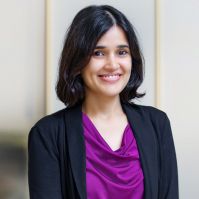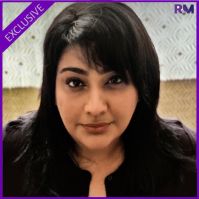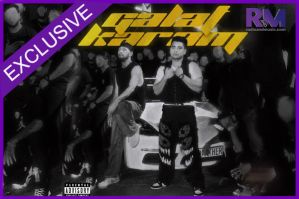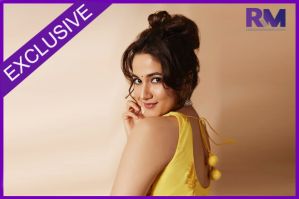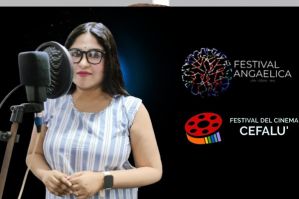Bickram Ghosh - 'I wish to create more music which will challenge my own boundaries as an artist'


Trained under his father Pt Shankar Ghosh, tabla maestro Bickram Ghosh is making waves with his brand of fusion music- "Rhythmscape". With Rhythmscape, Bickram has brought a unique dimension to the genre of fusion music. He also studied the intricacies of South Indian percussive traditions under celebrated Mridangam player S Shekhar. With many albums and film compositions coming his way, he is currently ruling the charts. Ghosh shares a moment with Radioandmusic.com's Anita Iyer.
Excerpts:
Tell us something about your childhood?
I was born in Kolkata, but was taken to the US when I was one. I grew up there in San Rafael till I was five. Those years were full of music as my father Pandit Shankar Ghosh, was teaching at the Ali Akbar college of music and among the people who I grew up around were Ustad Ali Akbar Khan, Pandit ravi shankar, Ustad Alla Rakha,Ustad Zakir Hussain, Ustad Aashish Khan, Chitresh Das etc. When we returned to India, I went to la Martiniere Boys, Calcutta where I was part of a rock band. I was simultaneously training in classical music under my father. It was this juxtaposition which later paved the way for my fusion explorations.
When you compose music, where does it come from?
Life experiences primarily. If I am in a particular frame of mind - sad, happy, nostalgic, I end up composing something that reflects that mood. However, for films, I have to be in sync with the flow of the film. Hence, I then delve again into my experiences to find a matching emotion and a corresponding melody.
My music, hence, is very autobiographical. If you look, for example, at the track The language of Innocence from my album Rhythmscape, you will find children's voices.....the entire texture of voices and sound is created from the source of my playing on the streets of Kolkata as a child.
Who has been your role model in life to excel?
Many people have inspired and influenced me. Some teachers in school, my father, Pandit Ravi Shankar, Ustad Zakir Hussain, R D Burman, Kishore Kumar etc. when it comes to movies.
How has the tabla evolved over the years? Is it entering the mainstream, or is it still on the sidelines of a concert?
Tabla has evolved from being a mere accompaniment instrument to an instrument which occupies centre-stage in concerts. Great artistes down the ages have ensured that the tabla is given its due respect (there is probably no other drum in the world with such literature and variety) and today we find the popularity of the tabla at its peak. It is an amazing journey for an instrument.
Revenue wise, is it advisable to take up the tabla as a profession?
As I said earlier, the tabla is essentially entering the mainstream and gaining importance as a musical instrument. You can be an average tabla player and earn an average income. But if you are a world -class artiste who is successful, you can earn a lot of money. Top tabla players are paid in several thousands for a show!
Does being the son of Pt Shankar Ghosh help in establishing yourself in the music industry?
Yes and no. It comes as a benefit because it allows you to approach any artiste or organiser. However, the disadvantage is that you are never really treated like a newcomer. The expectations are sky high from day one and people are just waiting to write you off! I had to go through all of this before I established myself in my own right.
In today's competitive music industry, are music companies willing to come up with instrumental music CDs?
Yes, they are. That is why you see so many classical instrumental CDs or all the instrumental fusion music that rides the charts! There is a big market for instrumental music as it transcends the barrier of language and is more widely appreciated.
Are today's youngsters willing to take up the tabla as a profession or are the majority of them taking up western instruments like the guitar?
My father still has 200 students learning the Indian tabla from him, even after he has turned away many. So, the desire to learn classical tabla has not gone down. However, the ratio of the classical music learners to popular music learners will always be in favour of the popular. If the guitar is the trend of the day, it will have more people taking it up. But classical music was always for the discerning few and cannot be compared to a popular music idiom.
How did you think of something like Rhythmscape?
It was again, a personal journey which led me to compose Rhythmscape. It showcases who I am as a person, a juxtaposition of sorts. Like Rhythmscape, I co-exist on a variety of planes. There is in me, primarily, this big Indian space which seeks to be comfortably ensconced with the various other cultural spaces that co exist within.
How does it feel to receive accolades from maestros like Pt. Ravi Shankar, Shubha Mudgal, Amjad Ali Khan and many more?
I am blessed to have played with all these artists whom I used to dream of playing with, and then receiving their appreciation has been one of the great treasures of my life.
How different is it to perform in India and abroad?
India creates a certain comfort zone for me. I am relaxed in the knowledge that people are familiar with certain things. Abroad, one must weave the show in order to accommodate the fresh listeners who are not so familiar with our music. However, more and more, people abroad are now becoming familiar with Indian music.
Now that you have started composing for films, how has the experience as a composer being?
I enjoy composing for films, especially if the team is in sync with me and my visions. I loved working on Sooni Taraporevala's Little Zizou which will release later this year.
You are one of the very few tabla players who is equally at ease in both the Hindustani and Carnatic music traditions.
I was fascinated by the mridangam, played by Pandit S.Sekhar, who was a guest artiste in my father's drum orchestra music of the drums. I learnt from him for over 20 years and ended up spending a lot of time down south playing with top musicians. My Carnatic training has been one of the reasons why I am known as a tabla player.
What are you currently working on?
I have some albums in hand like
Sunev: with Pete lockett, Jesse banister, djamel Beynelles...an international collaboration.
Ricardo and me: flamenco - tabla project.
One: Bickram Ghosh and the Mezcal jazz unit releases this month.
Repercussion with Pete lockett.
Masters of percussion
Electro- Classical and an untitled fusion album
Film:
Little Zizou (English), Charu (Hindi), Piyalis Password (Bengali)
As far as shows are concerned, we are constantly performing over the country. I will tour the UK in April and a US tour is on the board further down.
What more do you aim for?
I wish to create more music which will challenge my own boundaries as an artiste. I wish to set up a drumming institute at some point of time. I wish to play many more concerts through which I wish to give newer music to my listeners!




